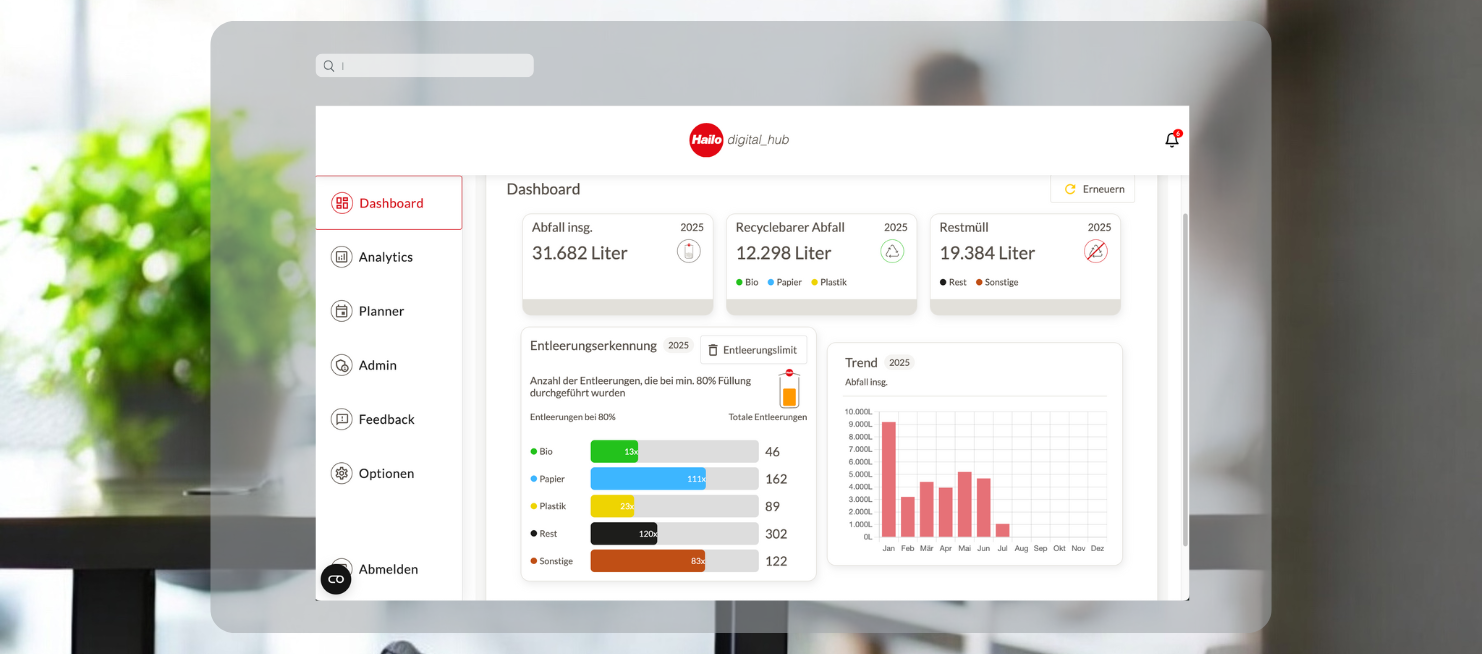Closing the Loop at the Office: How Digital Waste Management Drives Recycling Performance

Recycling is standard practice in many companies - at least in theory. But day-to-day operations often tell a different story: valuable recyclables still end up in general waste, bins are emptied on fixed schedules regardless of need, and actual recycling rates fall short of what’s possible. This not only leads to higher disposal costs, but also wastes raw materials that could stay in the circular economy.
For companies who have to deal with sustainability and ESG reporting, circular waste strategies are not optional, they are essential. Digital waste management solutions create new opportunities, helping organizations track recycling performance, improve sorting accuracy and make the circular economy part of everyday office life.
One of the biggest challenges is lack of visibility. Not many companies know exactly how much waste is being generated or which waste streams are most affected. Without data, decisions are made based on assumptions, which often results in missed opportunities and ineffective strategies.
This is where digital sensors in waste bins come in: they measure fill levels, track waste types, and send the sensor-generated data to a centralized dashboard. With that, Facility Managers get a clear, real-time overview of all waste streams across the building.
The benefits of Smart Waste Technology at a Glance:
- Transparency: Understand exactly where and which types of waste are being generated
- Optimization: Add targeted collection points or update sorting systems where needed
- Motivation: Visible feedback encourages staff to engage in better recycling practices
- ESG Data: Reliable metrics for sustainability and compliance reporting
Imagine a mid-sized company equips all office-floor bins with smart sensors. The data reveals that roughly 40% of recyclable materials are being tossed into general waste, especially in open-plan areas. With better signage, additional recycling points, and brief employee training sessions, the company increases its recycling rate by 25% in just six months. The outcome? Lower disposal costs, simpler ESG documentation, and a noticeable sustainability boost.
When employees see dashboards showing how their department contributes to sustainability, recycling becomes more than an abstract goal - it becomes a shared success. At the same time, companies that actively implement circular practices boost their employer brand, especially among younger talent that values environmental responsibility.
Circular waste management is no longer a vision for the future - it’s fully achievable with today’s digital tools. By combining economic efficiency with environmental accountability, smart waste solutions deliver measurable results. Companies that take action now will reduce costs, protect resources, and position themselves as credible, future-ready sustainability leaders.










